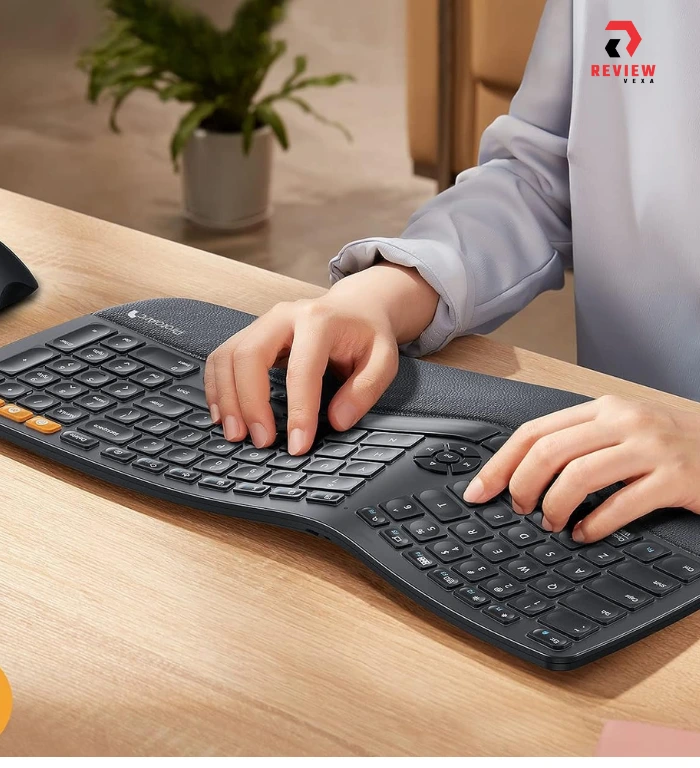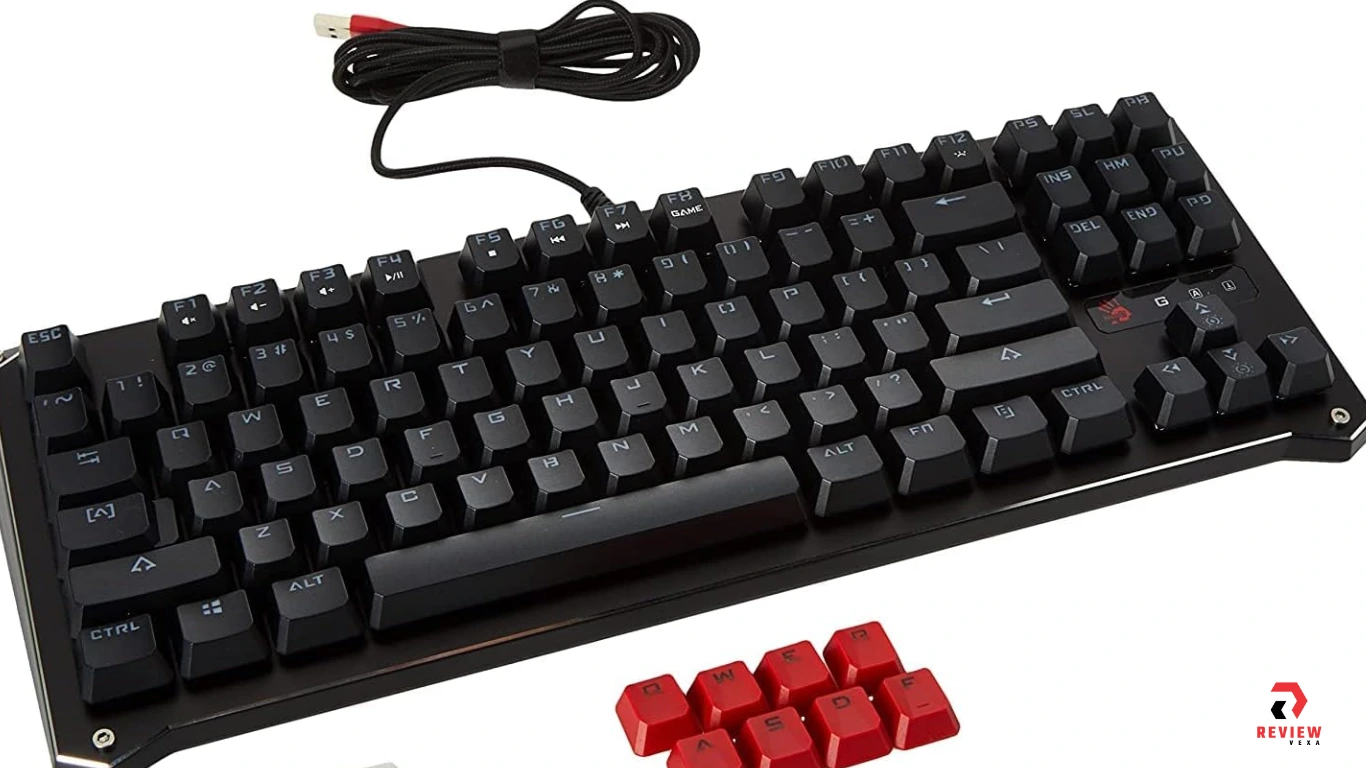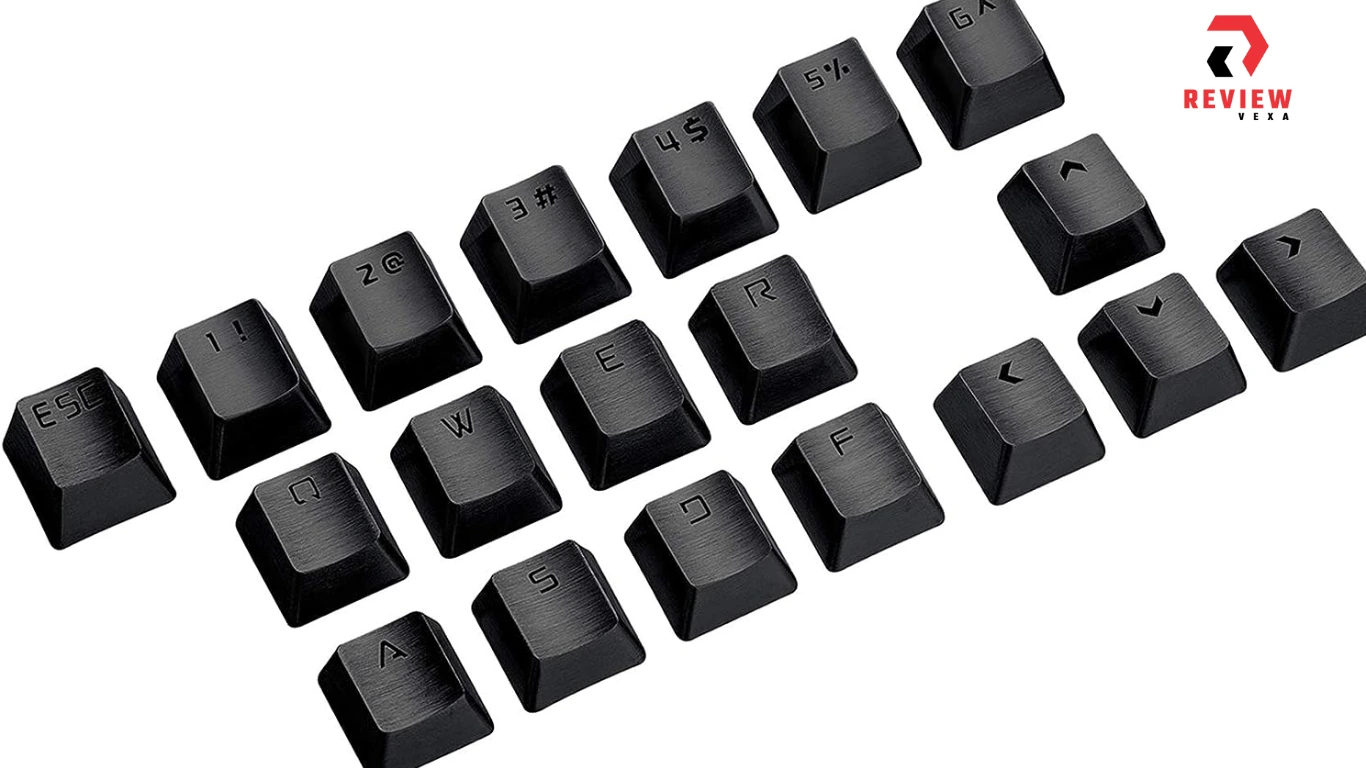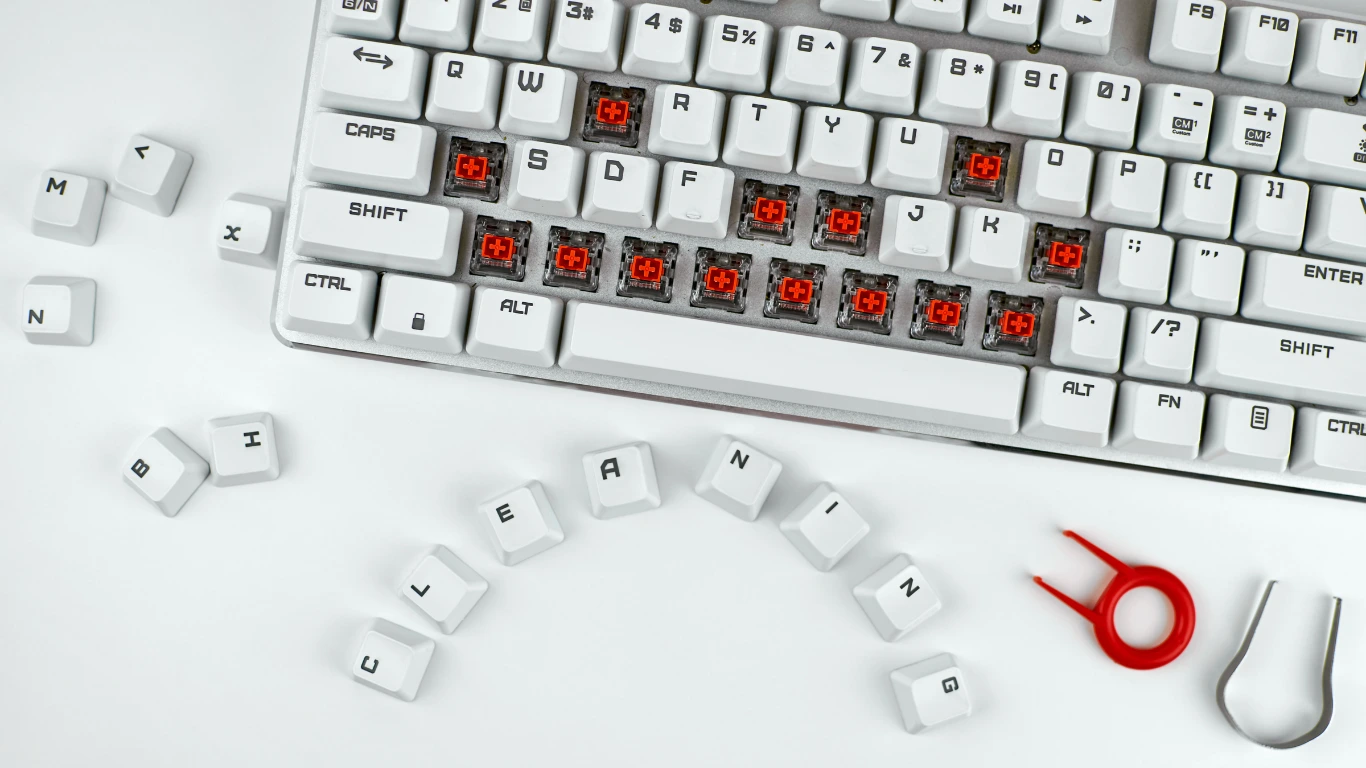When it comes to typing, your keyboard is your trusty sidekick. But have you ever wondered if the type of keyboard you use can impact your hands and overall typing experience?
We’re delving into the world of mechanical keyboards to explore whether they’re better for your hands, wrist health, touch typing, and why professionals and gamers often favor them.
Are Mechanical Keyboards Better for Your Health?
Let’s begin our journey into the world of mechanical keyboards by addressing a critical question: are they better for your health? The short answer is yes, and here’s why.
Ergonomic Design

Mechanical keyboards are renowned for their ergonomic design. They typically have a more comfortable key layout, which can reduce the strain on your wrists and fingers during extended typing sessions.
Tactile Feedback

Mechanical keyboards offer tactile feedback, meaning you can feel when a keypress registers. This feedback helps you type with a lighter touch, reducing the risk of repetitive strain injuries (RSIs) like carpal tunnel syndrome.
Customization Options

Many mechanical keyboards allow you to swap out key switches, enabling you to choose switches that best suit your typing style and comfort. This level of customization is a significant advantage for your hands.
Is a Mechanical Keyboard Good for Your Wrist?
Wrist health is a paramount concern for anyone who spends hours typing away at a computer. Mechanical keyboards can indeed be good for your wrists, and here’s how:
Reduced Keypress Force
Mechanical keyboards require less force to register a keypress compared to their membrane counterparts. This reduced force minimizes the strain on your wrist tendons and muscles, promoting better wrist health.
Wrist Rest Compatibility
Many mechanical keyboards come with or offer the option to attach a wrist rest. These wrist rests provide additional support and comfort during long typing sessions, further enhancing wrist health.
Adjustable Key Switches
As mentioned earlier, mechanical keyboards often allow you to choose key switches that match your typing style. Opting for switches with a lighter actuation force can be especially beneficial for your wrists.
Are Mechanical Keyboards Better for Touch Typing?
Touch typing, the art of typing without looking at the keyboard, is a valuable skill for efficiency and accuracy. Mechanical keyboards can play a role in improving your touch typing prowess:
Distinct Keypress Feel
Mechanical keyboards provide a distinct tactile and auditory response when you press a key. This feedback helps touch typists identify and correct errors more efficiently.
Consistent Keypress Actuation
Mechanical switches are designed to actuate at the same point consistently. This uniformity can enhance your muscle memory, making it easier to develop and maintain touch typing skills.
What Are the Disadvantages of a Mechanical Keyboard?
While mechanical keyboards offer numerous advantages, it’s essential to consider the potential downsides:
Noise
Mechanical keyboards are notorious for being louder than membrane keyboards. The audible click or clack of each keypress can be distracting in quiet environments.
Price
Mechanical keyboards tend to be pricier than their membrane counterparts. If you’re on a tight budget, this might be a drawback.
Weight
Some mechanical keyboards can be heavier than membrane keyboards due to their sturdy build. This could make them less portable if you frequently need to carry your keyboard.
Why Do Pros Use Mechanical Keyboards?
Professionals in various fields often choose mechanical keyboards for several compelling reasons:
Durability
Mechanical keyboards are known for their durability and longevity. They can withstand millions of keypresses, ensuring that they won’t give out during critical work tasks.
Comfort
The ergonomic design and customizable key switches of mechanical keyboards make them comfortable for extended typing sessions. This is especially important for professionals who spend hours at the computer.
Precision
The tactile feedback of mechanical switches allows professionals, such as writers and coders, to type with precision and accuracy, reducing errors in their work.
Why Do Gamers Prefer Mechanical Keyboards?
Gamers, too, have a strong preference for mechanical keyboards, and here’s why:
Fast Response Time
Mechanical switches register keypresses more quickly than membrane switches. This fast response time can be a game-changer in competitive gaming.
Customization
Gamers can select switches that suit their gaming style. For example, some may prefer switches that require less force for rapid keypresses, while others may opt for more tactile switches for strategy games.
Durability
Gaming marathons can put a keyboard through its paces. Mechanical keyboards are up to the challenge, with their robust construction ensuring they can handle intense gaming sessions without wearing out.
In summary, mechanical keyboards offer various benefits for your hands, wrist health, and typing experience. Their ergonomic design, tactile feedback, and customization options make them a top choice for professionals and gamers alike. However, it’s essential to consider potential drawbacks, such as noise and price, before making the switch. Ultimately, the decision to embrace a mechanical keyboard should align with your specific needs and preferences, ensuring a comfortable and productive typing journey.
